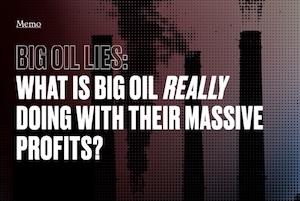
On Oct. 5, Saudi Arabia and the OPEC+ nations announced a major cut in oil production totaling two million barrels a day, the largest decrease since the start of the coronavirus pandemic. The policy represents a major reversal in production policy for OPEC, which had slashed output by a record 10 million barrels per day in early 2020 after demand plummeted due to the pandemic lockdowns.
Oil prices have fallen to roughly $80 a barrel from more than $120 in early June amid forecasts of a global economic recession. The production cuts for November are an attempt to reverse the decrease in oil prices. President Biden traveled to Saudi Arabia in June despite his 2020 campaign pledge to punish the kingdom for the brutal assassination of dissident U.S. journalist Jamal Khashoggi. But his outreach to Saudi Crown Prince Mohammed bin Salman failed to prevent production cuts or isolate Russia.
On Oct. 19, President Biden announced that he would release 15 million barrels of oil from the U.S. strategic reserve to bring down prices and called on U.S.-based Big Oil companies not to use their record-breaking profits to buyback stock or increase stockholder dividends. Instead, he said these profits should be used to increase production to lower gas prices for consumers.
Between The Lines’ Scott Harris spoke with William Lazonick, professor emeritus of economics at the University of Massachusetts. Here, he urges President Biden to issue an executive order to ban stock buybacks as the only way oil companies will cease using profits from high oil prices to pump up their stock value.
WILLIAM LAZONICK: Response of using resources from the strategic stockpile makes sense in order to keep prices down. But we do want and normally we rely upon the oil companies to produce oil and to to pump it out of the ground and to get into the pumps, etc.
And the problem is that that’s not the only thing that the oil companies do when they make profits. They tend to use those profits to not pump oil out of the ground, but to pump up their stock prices. And this is not something that’s unique to the oil companies, but it’s really I would call it the American disease, and that is companies buying back their own shares. Now, companies that are publicly listed like, let’s say Exxon Mobil will pay dividends and we as savers can usually count on those dividends when they have profit to give us some income, directly or indirectly.
But they also do something that they shouldn’t be doing — that is buying back their own shares, because unlike dividends, which reward people who hold shares for holding the shares, in fact, the people who make money out of stock buybacks are people who time the selling of shares or share sellers. And those include the top executives with the stock-based pay they have. They exercise the stock options, awards vest and they sell the stock and they reap the gains as part of their pay.
It also includes hedge funds who love stock buybacks and timing the buying and selling of shares, including some people we call hedge fund activists. You’ve probably heard of people like Carl Icahn, Nelson Peltz, Paul Singer, who go in and rip apart companies and the way they take the money out and get the stock price up, a prime way is by having the company do buybacks and pump up the stock price.
Now, the buybacks come at the expense of — in the oil industry — oil exploration, paying workers, higher wages, more taxes to the government. Meanwhile, we actually subsidize the oil industry, we actually subsidize these companies while they are actually using the subsidies just to pump up their stock prices. Between 2005 and 2015, when oil prices were high, Exxon Mobil, the most profitable of the companies, was doing about $22 billion of buybacks per year. That’s $22 billion just to pump up its stock price up.
When the oil prices came down and its profits came down, it still paid dividends. It stopped doing buybacks and even had to cut dividends eventually. But now that prices are high, the buybacks are back. And that’s how companies are using those high prices. So first of all, we shouldn’t allow the buybacks. We should have windfall taxes on their profits when they get lucky.
The prices are high. If we’re going to have government policy that’s going to try to contain high prices as part of the fight against inflation and for purposes of national security, then we in fact, should ban companies from doing these buybacks. I think we should ban all companies. But I suggested that perhaps Joe Biden could issue an executive order saying, “Okay, we have a national emergency. The oil companies cannot do any buybacks now.”
SCOTT HARRIS: Professor Lazonick, would the oil companies challenge such an executive order in court? Is there any role for Congress here? I know time is short before this midterm election, but what else could be done if such an executive order would be challenged in court and maybe tied up for months, if not years?
WILLIAM LAZONICK: It would be in some ways perhaps symbolic, but it would say, “We’re not just asking you please, as happened recently, where the president said, ‘Please don’t do buybacks, that you are not allowed to do them’ and let that be challenged in the court.”
Yes, it wouldn’t solve the problem immediately and there would be a huge blowback against that.
For more information, visit the web page for William Lazonick at the Institute for New Economic Thinking.
Listen to Scott Harris’ in-depth interview with William Lazonick (17:09) and see more articles and opinion pieces in the Related Links section of this page.
For the best listening experience and to never miss an episode, subscribe to Between The Lines on your favorite podcast app or platform: Apple Podcasts, Spotify, Stitcher, Google Podcasts, Amazon Music, Tunein + Alexa, Castbox, Overcast, Podfriend, iHeartRadio, Castro, Pocket Casts, RSS Feed.




